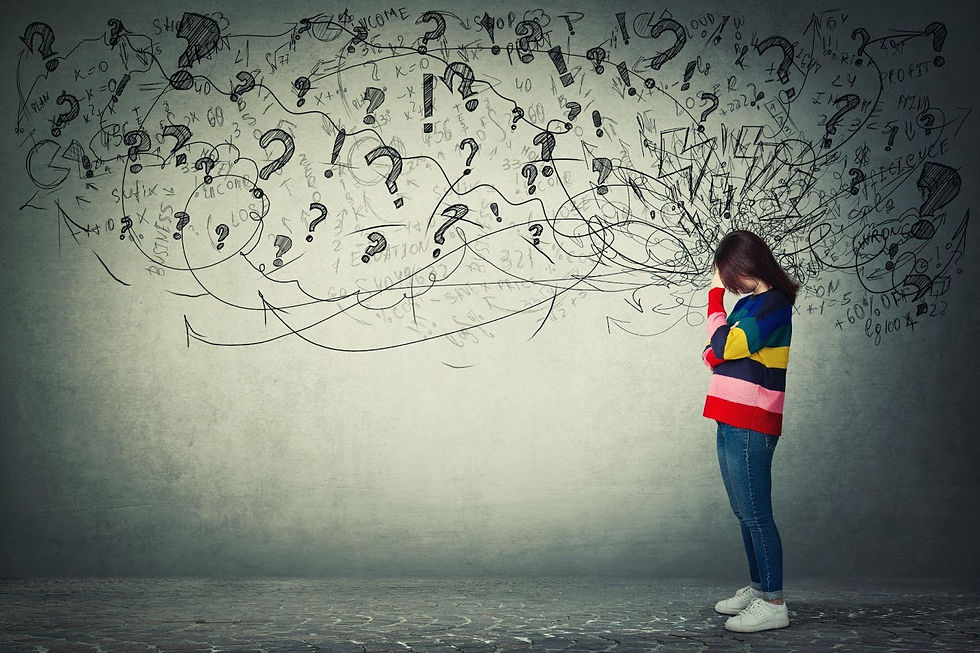Rooted
- Stacey Patterson, LCPC
- Aug 11, 2023
- 2 min read

You gotta resurrect the deep pain within you and give it a place to live that's not within your body.
Let it live in art. Let it live in writing. Let it live in music. Let it be devoured by building brighter connections.
Your body is not a coffin for pain to be buried in. Put it somewhere else.
-Ehime Ora
I experienced a lot of losses this spring. Big losses of people who have been foundational to my life since childhood. And in my grief, I have felt ungrounded, uprooted, and shaken.
As a music therapy intern at hospice, I learned to lean into metaphors and to find a space for grief and healing within music, art, reading, writing, and active experiences. So I have embraced this process. And I have found a healing space within music (singing along to lyrics such as “keep the earth below my feet”-Mumford and Sons), within art (drawing trees with elaborate root systems), within writing (learning about how trees communicate through their roots-The Hidden Life of Trees), within mindfulness (doing “grounding” exercises), and within quiet reflection while hiking, camping, and gardening. Perhaps the most profound of these connections has come while reading a children’s book, Finding Calm in Nature, which offers a way of understanding roots that was new to me.
The book talks about how redwoods, the tallest trees in the world (and incidentally some of my favorite trees), have very shallow roots, but find their stability by connecting with the roots of other trees. Their roots extend out and not down. I think people are like that too. We have our own individual root systems that support us, but our ability to grow and thrive is strengthened by how we connect with others and their root systems. We don’t live in isolation, and we are not dependent on one single source of rooting. When we lose someone or something that has been foundational, our lives are disrupted, but we are not completely uprooted, and in this disruption, we can choose to lean into our other connections or other aspects of our lives that root us.
This new framework for experiencing and thinking about grief hasn’t made my grief disappear, but it has allowed me to feel safer and calmer and less disoriented in the midst of big emotions. Rerouting is easier than rerooting. And, as it turns out, in grief, our brains may also be engaging in a similar rerouting as neurologically our minds make sense of the loss (Psychology Today ). There is a peace in understanding my process. And there is a joy in paying attention to and following metaphors, never quite knowing when and where answers may appear.
Stacey Patterson, LCPC, MT-BC



Comments